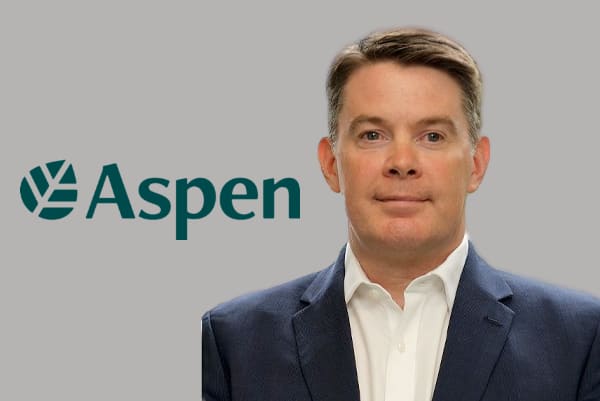Third-party reinsurance capital is central to Aspen’s strategy: Philip Hough

Bermuda-based insurer and reinsurer Aspen’s use of third-party capital is a key, strategic focus for the firm and will remain so going forward, according to Philip Hough, Global Head of Property Reinsurance at Aspen Re.
Aspen Capital Markets (ACM), the third-party reinsurance capital management unit of the global re/insurer, has become an important part of the Aspen franchise over the years.
The unit specialises in creating bespoke portfolios of reinsurance for investors via managed insurance-linked securities (ILS) funds, as well as quota share sidecar structures.
Considering that the growth at ACM, which as of June 2022, had assets under management (AuM) of almost $1 billion, up from $918 million at the end of 2021, we spoke with Aspen Re’s Hough about the company’s use of capital markets-backed reinsurance.
“It’s critical for us,” said Hough. “At Aspen, we’re leveraging expertise and value through our three-segment model; insurance, reinsurance and capital markets. Connectivity for us with the capital market side has become an integral part of the way we do business. It helps us think about the risks that we’re taking on and how we allocate those risks to the most efficient capital to help maximise returns.”
Aspen’s capital markets component has represented a stable source of partnership capital, allowing Hough and his team to take further advantage of market opportunities. And, over the last few years, they have been working closely with ACM to broaden those relationships.
Hough explained that he expects this close collaboration to continue, and that’s it’s not limited to the property catastrophe marketplace.
“It extends into other areas beyond property cat. For example, this can be done through fully aligned quota share agreements we have in place supporting our casualty exposure. However, we also can match segments of our business to individual investor appetites through more managed product solutions.
“Obviously, it’s generating fee income for the group, but it’s also instrumental in helping us to manage our net exposures, particularly to key catastrophe zones,” said Hough.
Aspen is yet to report its results for the full year 2022, but during the first half of the year, ACM generated fee income of $47 million, compared with $30.5 million in H1 2021. For the full year 2021, ACM generated fee income of $61.4 million, which is roughly double the total seen in 2020.
“It will remain a fundamental part of our business going forward, giving us potentially access to offering greater scale. By partnering with our ACM team to manage some of those longer-term trading relationships with our clients, we can enjoy more stable appetites and it also strengthens our franchise value,” concluded Hough.






